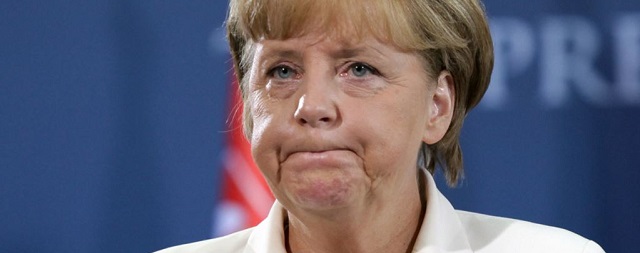In East Germany, one out of four workers earn less than €8.5 per hour. In Stralsund, a city located on the banks of the Baltic Sea–on the German northern coast–, the authorities of the local employment office in 2010 reported against a hostel owner who paid his staff €1.32 per hour. In fact, job centres systematically take action against wage dumping because the law sets a clear bar: it is unlawful to force a pay below the threshold of 2/3 of the industry’s average salary. Unfortunately, cases still abound.
For instance, according to a recent sentence by the Naunburg courts, it is a criminal offence to pay cleaning workers less than €1.79 per hour. In Neubrandenburg, a shop assistant was being paid €1.67; a restaurant waiter, €2.7; and a call-centre worker, less than €2. Germany is rich, powerful, and also poor and incongruous.
Its politics aren’t less confusing. Peer Steinbrück, former Finance minister and social-democrat (SPD) candidate to the Federal Chancellery, has made two promises: if he gets elected next Autumn, he’ll introduce a minimum salary, and he’ll push for more solidarity with the European peripheral countries. But Günther Oettinger, former prime minister of Baden-Würtemberg, says Europe is a clinical case. For Bundestag’s president Norbert Lammert, the European Union already contains enough troubled states and should shut its doors to any expansionary plans. In former Chancellor Helmut Schmidt opinion, there is not one of the bailout mechanisms in place that really works.
What seems obvious is that the German economic magic potion doesn’t work outside Germany. Germany’s economy grows, domestic demand holds its nerve in spite of the crisis, unemployment remains low, its companies are competitive and the state budget deficit is negligible by its neighbours’ standards. So what are the ingredients of that potion? There is one worth bearing in mind: the dismantling of the social welfare.
The Schröder reforms (Agenda 2010 and Hartz IV) generated more occupation ..and more cheap labour, and more social inequality. The German reforms weren’t exactly a success for the working classes, although they ultimately achieved outstanding rates for the general economy and its exports muscle. It is the victory of hard-line capitalism over the social state, and its official excuse is the eurocrisis, the debt crisis.
Steffen Vogel, author of “Revolution von oben. Sparpolitik und Demokratieabbau in der Eurokrise” disagrees. Vogel believes that radical neo-liberalism began to take hold of economies and governments right after the first oil crisis, which halted the cycle of ever higher production, consumption and more expensive lifestyles. In Germany, the transformation would have reached its peak when Angela Merkel proclaimed in September 1, 2011, a subversion of the country’s democracy into a democracy under the markets’ rules. Merkel eased the way for the markets to transfer the costs of the crisis onto the whole of the population.
From 2008 to 2010, some €1.6 trillion were spent to rescue several countries. Private debts and losses became public problems, while the north-south unbalances within the Eurozone remained. “Without financial redistribution and Eurobonds, austerity policies dictated by the EU and the IMF only provoke the destruction of the social welfare, public services privatisation and lower wages,” says Vogel. And at the end, ever more inequality.
Germany’s economic health isn’t as robust as thought, either. Despite expectations of GDP growth for the second half of 2013, the IMF has lowered to 0.3% its forecast, that is, down to half the figure presented last January. The reason is that Germany depends on how its European neighbours do: Germany can only leave the crisis behind if the Eurozone exits recession territory; otherwise, it will be a flat economy and unemployment increases for Germans, too.
Brussels recommendation have been greeted in Berlin with little enthusiasm. The European Commission has suggested a rise of salaries to prop up domestic consumption, and tax cuts to those workers who earn less. The Commission also criticised that there are too many precarious jobs, with unsustainable wages attached. It would mean a partial reversal of the Agenda 2010 and the introduction of short part-time positions, badly remunerated, with no social security contribution, and the 2005 reform of unemployment benefits, by which access was restricted together with durations and the amount of money received.
Mario Draghi, the governor of the European Central Bank, cannot see any miracles coming, neither in Germany nor in the rest of the euro region: “The economic situation is and will be difficult.”






Be the first to comment on "Would you work in Germany for €1.32 an hour?"